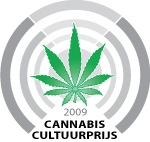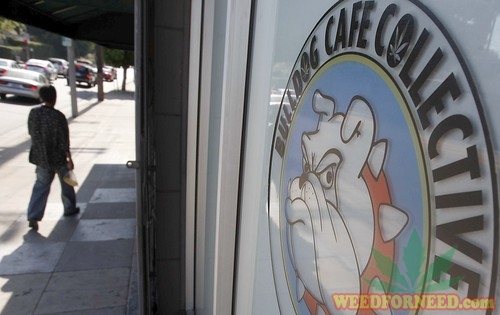Posts Tagged ‘medical’
Cannabis in California: A local and federal divide
The recent history of cannabis in California demonstrates a split between state and federal law that is rapidly widening. The first U.S. state to have, in 1913, prohibited the use of the devil’s herb imported by Mexican immigrants that was “marijuana”, California was also the first to legalize the medicinal use of cannabis in 1996.
15 years of legal ambiguity on medicinal marijuana
Read the rest of this entry »
Medicinal cannabis patients classed as ‘drug addicts’ by Oregon sheriffs
Despite the amount of illegal firearms and genuinely harmful drugs that America seems to be knee-deep in, police in Oregon are concerned that card-holding medicinal marijuana users might be legally carrying guns.
Under the U. S. Gun Control Act of 1968, guns may not be sold to drug addicts. Most people would agree that this is a good idea, as the mental image of a ‘drug addict’ is almost always negative: shaking, dirty, paranoid, and incapable of rational thought. Nobody wants to arm that person.
Read the rest of this entry »
Ex-U.S. attorney: Time to change pot laws

Three years ago, former U.S. Attorney John McKay was somewhere near the front lines of the nation’s drug war.
Directing federal prosecutions in Western Washington before he was fired in 2006 by the administration that appointed him, McKay’s office sent marijuana smugglers and farmers to prison on decade-long terms. It indicted a loudmouth Canadian pro-pot activist for selling cannabis seeds by mail order.
Read the rest of this entry »
18 negative effects of the ban on cannabis

Here is a list of some of the negative effects of the ban on cannabis:
- The ban on cannabis means that in addition to the coffeeshops and people who grow for their own use, an illegal market in cannabis also exists. There is no possibility of control over this illegal market which leads to criminality, unsafe situations, and events that disturb the peace; and to which underage people have easy access.
- The ban on cannabis makes large scale crops and export of the product into a lucrative source of income for criminal organizations which can then use this income for other criminal activities, or ‘wash’ it via money laundering operations that can disturb the legal economy.
- The ban on cannabis encourages criminal and antisocial behavior: rules concerning safety and security (for growing and in the marketplace) are easily broken and this goes unpunished. Conflicts are resolved using violence.
- The ban on cannabis leads to an increase in prices, as the producer in an illegal market calculates their risk into the price.
- The ban leads to a migration of tourists to coffeeshops near the borders of the country, and the operation of ‘drug runners’ to transport the product. Simple solutions for this problem such as the proposal for a so-called ‘Weed Boulevard’ with legal supply logistics are held back by the ban on cannabis.
- The ban on cannabis puts enormous pressure on the resources of the police and the justice system, which cannot then devote them to other, more important goals. Some of the methods used to enforce the ban limit the personal freedom of civilians and are a matter of contention in court.
- The costs of enforcing the ban on cannabis are not justified by the results. Although the goal of the ban (an essential reduction in supply and demand) fails to come a single step closer, the ban itself is never brought forward for discussion.
- The ban on cannabis damages the credibility of the government, given that the use of cannabis continues to be firmly naturalized in society.
- The (world-wide) ban on cannabis is one of the pillars of the U.S. dominated War On Drugs, which has led to sizeable global violations of human rights; and severely damages both the environment, and the security of the populations of cannabis-producing lands.
- The ban on cannabis impedes the development of the industrial applications of the plant, which is capable of making a very valuable contribution to a sustainable future.
- The ban on cannabis makes it impossible to carry out standardized controls on the product. Therefore demands can hardly be placed on the product in terms of consistent quality, health, or accompanying information on the contents and effects of the product.
- The ban on cannabis leads to unwelcome and unhealthy practices in production which negatively affect the quality and effects of the product, and thereby damage the health of the consumer.
- The ban on cannabis criminalizes the cannabis consumer (over one million Dutch people), with negative social consequences for the people in question, their relationships, their family, and their home and work environment.
- The ban on cannabis is a restriction of the right to freedom of expression. It legitimizes information about the supposed evils of cannabis, information that cannot be seriously tested for durability, credibility or truthfulness and yet is used as justification for the active enforcement of the ban.
- The ban on cannabis damages the right of the individual to make decisions about his / her own body.
- The ban on cannabis damages the right of the individual to possess a medicine that is necessary to maintain or support his or her health and wellbeing.
- The ban on cannabis dissuades doctors from prescribing it to patients who could benefit from the effects; and delays the process of recognition of its medicinal applications in the treatment of multiple afflictions such as HIV and AIDS, Multiple Sclerosis, cancer, and chronic pain.
- The ban on cannabis denies the government the possibility of levying taxes on the product.
Cannabis Ebonics – Stoner Terms
We found this list of stoner terms online and thought we’d share them. Some of the terms are more frequently used in America however most (if not all) have made their way into the international stoner vocabulary. We also dug up a classic clip of Ali G listing other stoner terms:
April 20th (4/20) – International Cannabis Day, everyone blazes on this day. Everyone blazes at 4:20 every day too.
Houses made of hemp could help combat climate change!
We have recently come across this very interesting press release from Professor Peter Walker at the University of Bath (U.K) who is leading the research into the use of hemp-lime in construction. Buildings and other infrastructure currently accounts for almost 20% of the UK’s eco-footprint. This is another example of how this wonderful plant can help save reduce carbon dioxide emissions. Recently we brought you the news that Hanes – one of the worlds biggest consumer brands – has been investing in a new hemp technology called Crailar which requires only a fraction of the water needed to make cotton; and we are very happy to announce that it is the subject of another of our articles, a Dutch company called Hempflax who has won the contract to supply the raw materials to Hanes – i.e. the HEMP!
New medical marijuana policy issued by the President
The Obama administration announced today that it will not seek to arrest medical marijuana users and suppliers as long as they conform to state laws, under new policy guidelines to be sent to federal prosecutors Monday 19th October. A 3-page memo spelling out the policy is expected to be sent Monday to federal prosecutors in the 14 states which allow some use of marijuana for medical purposes, and also to top officials at the FBI and the DEA.
Medical marijuana dispensaries could face closure
 With hundreds of medical marijuana dispensaries in Los Angeles operating in violation of a moratorium, the City Council will start the process of shutting some down Tuesday by voting on exemption requests filed by 16 dispensaries.
With hundreds of medical marijuana dispensaries in Los Angeles operating in violation of a moratorium, the City Council will start the process of shutting some down Tuesday by voting on exemption requests filed by 16 dispensaries.
Most, if not all, of the requests probably will be denied because the dispensaries did not register with the city by the moratorium’s deadline in 2007. A denial would allow the city to take legal steps to force them to close. Read the rest of this entry »